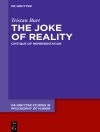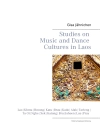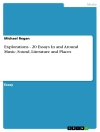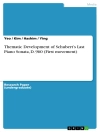In ‘Chapters of Opera, ‘ Henry Edward Krehbiel meticulously dissects the evolution of operatic art, offering readers an engaging exploration of its historical and cultural significance. Written in a lyrical yet scholarly style, Krehbiel’s prose intertwines analysis with anecdotal narratives, allowing for a comprehensive understanding of opera’s development from its nascent forms to its grand productions. The book’s rich context is anchored by Krehbiel’s deep appreciation for music as a multifaceted cultural phenomenon, evidenced by his incisive comparisons of different styles and genres, alongside vivid portraits of key figures in opera history. Krehbiel, a prominent music critic and scholar of the late 19th and early 20th centuries, brought a wealth of knowledge to this work, influenced by his involvement in the American music scene and his passion for elevating the opera as an art form. His previous writings and critiques reflect his commitment to demystifying music and making it accessible to a broader audience, which aligns with his intent in ‘Chapters of Opera’ to not only inform but also inspire a love for this sophisticated genre. This book is highly recommended for anyone seeking to deepen their understanding of opera or who wishes to appreciate the interplay between music and cultural history. Krehbiel’s insightful analysis and engaging narrative style make it an essential read for both scholars and casual enthusiasts alike.
Sobre el autor
Henry Edward Krehbiel (1854-1923) was an influential American music critic and author, particularly admired for his scholarly approach to music journalism. Born in Ann Arbor, Michigan, Krehbiel’s deep-seated passion for music was evident from a young age, despite his initial pursuit of a career in law. He soon switched his focus to music and became a renowned critic and writer. His contributions to the field of music criticism were especially impactful during his tenure at The New York Tribune, where his reports were lauded for their insightful analyses and keen understanding of both music and the cultural milieu in which it evolved. Krehbiel was known for his erudition and the eloquence of his writing style. His expertise was not limited to the affairs of music criticism; he was also a noted musicologist and historian of music. In his book ‘Chapters of Opera’ (1908), Krehbiel offers a rich exploration into the development and substance of opera as an art form, illustrating his encyclopedic knowledge and deep reverence for the genre. His literary contributions provided readers with a profound understanding of operatic compositions and historic performances. More than just reviews, Krehbiel’s writings sought to contextualize music within broader artistic and social narratives, thus extending the reach of his influence to both connoisseurs and the general public alike. His legacy endures through his written works, which continue to engage and inform music scholars and enthusiasts to this day.












